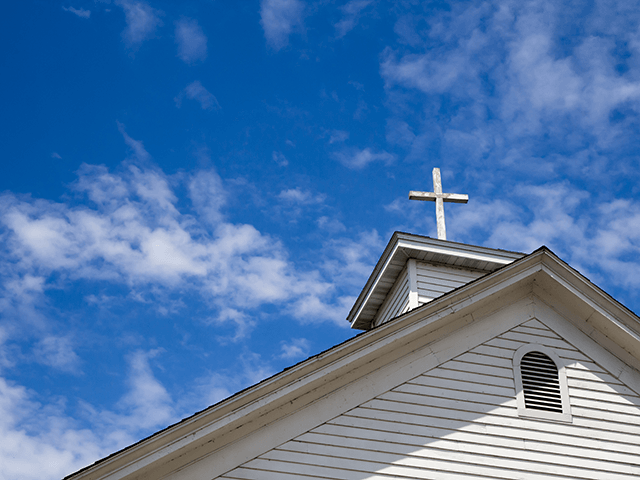The percentage of Americans who say patriotism, religious faith, family, and other traditional American values are “very important” is on the decline, a Wall Street Journal-NORC poll found.
Support for every traditional American value included in the poll has receded since 1998, except “money,” which has grown in importance. The data also shows young people and Democrats tend not to highly rank traditional American values as much as older adults and Republicans.
This should be a wake-up call to both Christians and patriots.
Be informed, not misled.
The Wall Street Journal (WSJ) says, "America Pulls Back From Values That Once Defined It."
Their recent poll found that patriotism, religion, and hard work hold less importance.
"Patriotism, religious faith, having children and other priorities that helped define the national character for generations are receding in importance to Americans," the WSJ reports.
Some 38% of respondents said patriotism was very important to them, and 39% said religion was very important. That was down sharply from when the Journal first asked the question in 1998, when 70% deemed patriotism to be very important, and 62% said so of religion.
Patriotism
Broken down by political affiliation, Republicans (59 percent) are more likely than Democrats (23 percent) and independents (29 percent) to rank patriotism as a “very important” value. Older adults are also more likely to place more importance on patriotism than young adults. Twenty-three percent of adults under 30 say patriotism is “very important” compared to 59 percent of seniors ages 65 and older.
Respondents were also asked about how they view the United States. Twenty-one percent say the United States “stands above all countries in the world,” 50 percent say it is “one of the greatest countries in the world, along with some others,” and 27 percent say “there are other countries better than the United States.” The percentage of Americans who believe other countries are better than the U.S. rose to 27 percent from 19 percent in 2016.
Religion and Community
While 49 percent of respondents say, “I know God really exists and I have no doubts about it,” only 39 percent say religion is “very important” to them. Like patriotism, religion has seen a precipitous decline in ranking of importance: 62 percent of Americans said religion was “very important” in 1998, a sentiment which tumbled down to 48 percent in 2019 before hitting this year’s low percentage.
Younger respondents are less likely to rank religion as very important to them than seniors, 31 percent to 55 percent. Republicans (53 percent) are also more likely than Democrats (27 percent) and independents (38 percent) to say that religion is “very important.”
When asked, “How often do you attend religious services?” nearly a third (32 percent) say “never,” followed by 19 percent who say “less than once a year.” Thirteen percent say “every week,” 8 percent say “several times a year,” 9 percent say “once or twice a year,” and 6 percent say “several times a week.” Five percent say “2-3 times a month,” and 5 percent say “nearly every week.”
Having Children
Americans do not rank having children as “very important,” which is not shocking given that the U.S. birthrate has been bottoming out in recent years and has been declining for decades.
Thirty percent of respondents rank having children as “very important,” down from 43 percent in 2019 and 59 percent in 1998. Adults under 30 years old are below the average, with 23 percent ranking having children as “very important.” Republicans (38 percent) are more likely than Democrats (26 percent) and independents (20 percent) to say having children is very important.
Money
As the Journal noted, “the only priority…tested that has grown in importance in the past quarter-century is money.” Forty-three percent of Americans say money is a “very important” value, up from 41 percent in 2019 and 31 percent in 1998.
When asked to describe their financial situations, 44 percent of Americans say, “My finances are in worse condition than I expected for this stage in my life.”
Takeaway
Bill McInturff, a pollster who worked on a similar Journal survey that measured these values, says that “these differences are so dramatic, it paints a new and surprising portrait of a changing America” and speculated that “perhaps the toll of our political division, Covid and the lowest economic confidence in decades is having a startling effect on our core values.’’
While Covid certainly had a major impact on us here in the US and around the world---and the current leadership in our country is doing nothing to build economic confidence, I disagree that "the toll of political division" is impacting our core beliefs.
Polls in recent years have found that Americans perceive a decrease in religious influence in the United States and place less value on their children sharing their religious views.
It isn't the "political divide" that's the cause---it's the "spiritual divide"---a secular progressive worldview vs. a biblical worldview that has created the political divide. This is why "politics" cannot solve the problem. The problem is upstream from politics.
Until we solve the spiritual problem---which is what do we believe about God---there will be no political solutions.
Until we begin to "train up our children in the way they should go," there will be cultural chaos.
Until churches begin to speak Truth to the culture, they will be inconsequential to the decay.
In Deuteronomy chapter 28, Moses writes about blessings and curses, telling the people of God that if they choose to forsake rather than follow Him and His Truth, they will, among other things, lose their children.
Verse 32 says, "Thy sons and thy daughters shall be given unto another people, and thine eyes shall look, and fail with longing for them all the day long: and there shall be no might in thine hand."
Verse 41 says, "Thou shalt beget sons and daughters, but thou shalt not enjoy them; for they shall go into captivity."
We have turned away from the Lord in our once godly nation. We have forsaken our founding principles.
Restoring a nation begins with restoring a heart---one heart at a time.
Be Informed. Be Discerning. Be Vigilant. Be Engaged. Be Prayerful. Be Blessed.



